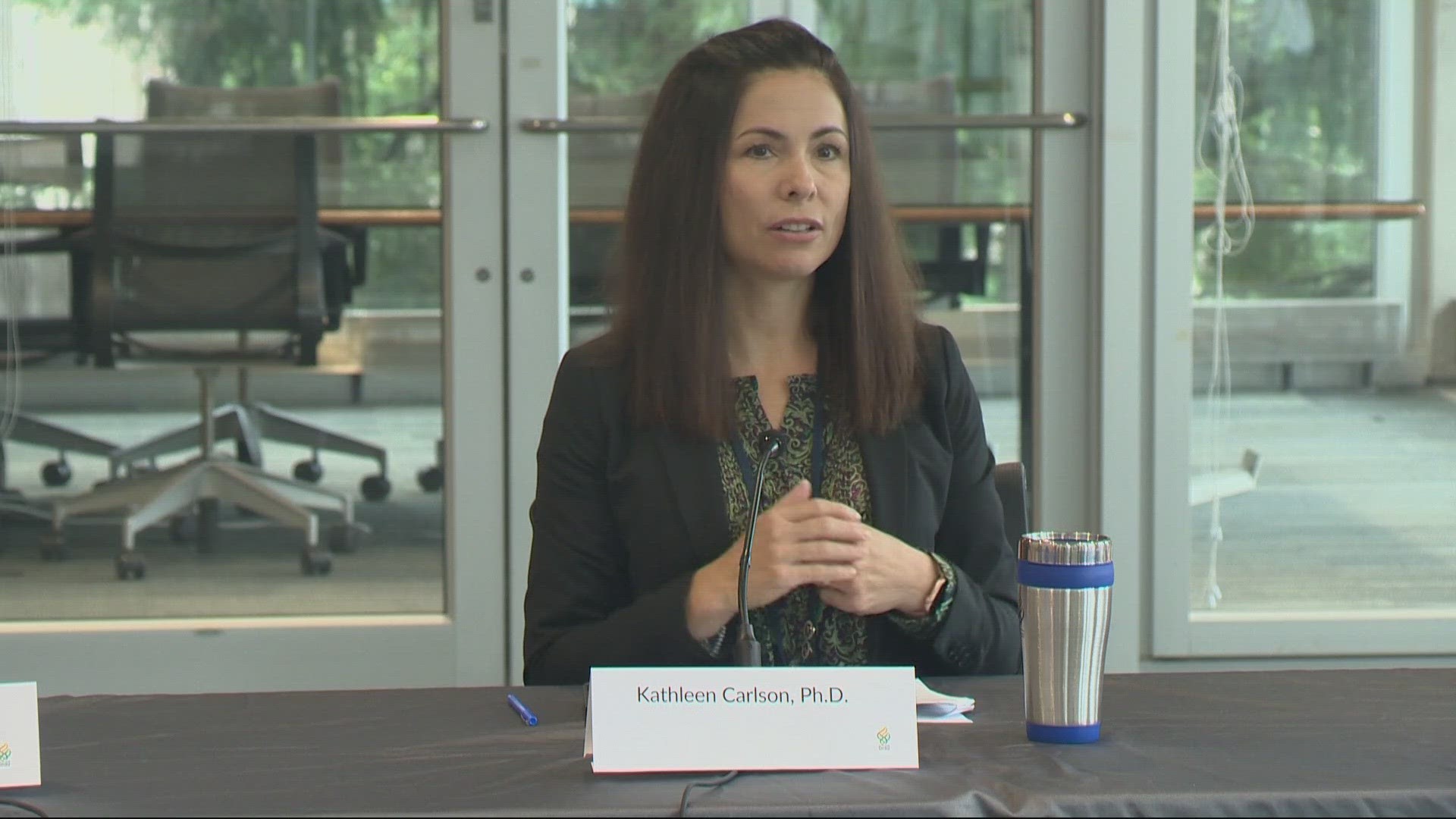PORTLAND, Ore. — The problem of rising gun violence can seem insurmountable, but Portland health professionals expressed hope during a roundtable discussion at Oregon Health and Science University Wednesday morning.
The talk between medical experts, law enforcement, and people with lived experience — whose lives were forever changed by a shooting or suicide — sought to frame the issue through a public health lens.
"This is not a dichotomous gun rights versus gun control issue," said Dr. Kathleen Carlson, director of OHSU's Gun Violence Prevention Research Center. "This gets us nowhere, and in fact we've lost ground, with increasing rates of gun injuries and deaths over the last couple decades. What we mean to say, most simply, is we're using multilayered, multifaceted approaches to understanding the multiple causes of gun violence."
RELATED: Gun violence is the ultimate 'superstorm,' President Biden says as he announces new federal effort
The experts talked through the data points, the troubling trends, the solutions that are working and the additional steps that need to be taken.
"In the field of injury science, we often say injuries are not accidents. They're patterned, which means that they're predictable, which means that they're preventable," Carlson said. "Sometimes it feels overwhelming, but we're trained here to take a scientific, strategic approach of overcoming things that seem insurmountable."
Among the group gathered were surgeons specializing in trauma, pediatrics, an internal medicine doctor, a psychiatrist, and a Portland Police lieutenant.
"Gun violence in children has increased dramatically. It is the number one killer amongst all children," said pediatric surgeon Dr. Mubeen Jafri, "It's something that we have to be really, really cognizant of. The amount of guns that are present in the community... the horse is out of the barn. We have to think about how we impact these things."
Homicide numbers in Portland are down compared with last year, and Lt. Ken Duilio said the police bureau has seen increased traction from some of the prevention and intervention programs that the department has restarted.
"Even if we reduce homicides by 20 to 30 percent, we've got a long way to go to get back to (a) pre-2020 number," he said.
Roy Moore, the co-director of Healing Hurt People's Community Care Team, through Portland Opportunities Industrialization Center, was also on Wednesday's panel. He's channeled his lived experience into change and support for families impacted by gun violence.
"I was a victim of gun violence. I come from that lifestyle, and I'm very proud to be no longer involved in it," he said, "I know what it's like to be in that hospital bed, and that's why I do the work I do. I understand the nuances of recovering from a traumatic event, but I also want to work with my people so I can heal that trauma."
Solutions proposed included safer storage for guns, separate from ammo; mental health holds, and protective orders, including the use of Oregon's Red Flag Law; plus more education and funding for further research.
"Undoubtedly, there are many more solutions to this problem that we haven't happed into and we haven't tried," Carlson said.
Experts told KGW there hasn't been dedicated federal funding to study gun violence and injury prevention for decades. Carlson said that was by design, because the scientific study of this problem was viewed for years as promoting gun control.

